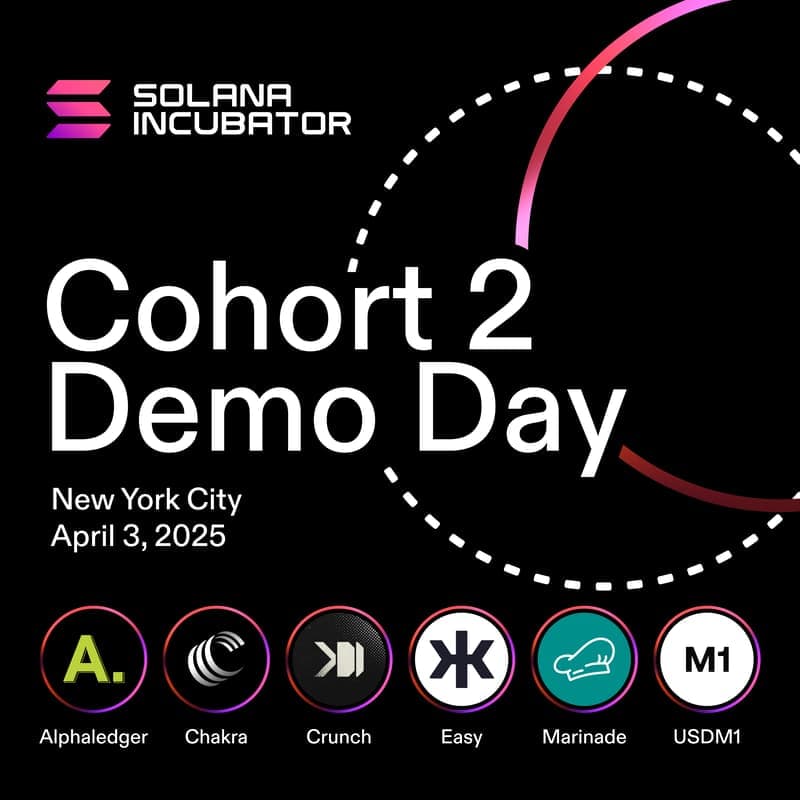Solana Incubator's Third Cohort Unveils Six Startups Advancing Web3

The Solana Incubator recently showcased its third cohort's Demo Day, featuring six "elite teams" building at the "frontier of Solana tech," as announced by the Solana Incubator on social media. The event highlighted projects focused on driving onchain commerce and real-world adoption, ranging from stablecoin infrastructure in Africa to AI agents for crypto trading and novel debt financing solutions. The program, known for its intensive three-month in-person collaboration in New York City, aims to nurture the next generation of "blue chip" companies within the Solana ecosystem.
Emon Motamedi, Head of the Solana Incubator, emphasized the program's unique approach, stating, "We work very hands-on with four to six teams max. They come into the New York office for three months at a time and the goal is basically to work across the labs team to build the next blue chip company on Solana." This cohort notably focused on "onchain commerce, novel ways to drive commerce onchain," reflecting a broader trend in the Solana ecosystem towards practical, real-world applications.
Among the presenting teams, Zynta Finance demonstrated significant traction, having processed over $140 million in transaction volume by building B2B regulated stablecoin infrastructure for Africa. Genpulse AI introduced an AI platform transforming real-world health data into personalized AI agents, already achieving $1 million in revenue. Seedplex unveiled "venture tokens," a new fundraising primitive designed to offer founders the benefits of both equity and token fundraising, with over 20 projects in its pipeline.
SendAI, co-founded by Yash, presented an AI agent platform aimed at automating complex crypto trades, envisioning a "Zapier for crypto" where AI agents execute multi-step actions. Xitadel addressed the lack of corporate debt financing in Web3 by offering an overcollateralized fixed-yield debt protocol for post-TGE projects, aiming to unlock a multi-billion dollar market. Lastly, Pye Finance introduced "staking plus," a solution for validators to attract and retain stake by turning idle stake into productive capital through new financial primitives like Pi accounts for locked Solana.
The Solana ecosystem continues to demonstrate robust growth, with recent reports indicating significant revenue generation and a rapidly expanding developer community. Projects like those from Cohort 3 align with broader trends in the Web3 space, focusing on scalability, efficiency, and bridging the gap between traditional finance and decentralized applications. The incubator's commitment to hands-on support and fostering innovation positions these startups to contribute to Solana's evolving landscape.